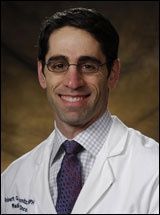Second Breast Removal in Cancer Treatment Has Only Slight Benefit: Study

Researchers on Tuesday suggested that the surgical removal of the unaffected breast in patients with breast cancer in one breast only has a slight benefit.
Researchers at the University of Pennsylvania’s Perelman School of Medicine said that younger women with early stage breast cancer are often offered contralateral prophylactic mastectomy (CPM) treatment as a preventative measure, whether or not their cancer is genetic in origin.
“At the outset of the study, we already knew that CPM was not going to help women with locally advanced breast cancers,” said Robert G. Prosnitz, an assistant professor of radiation oncology.
“What surprised us, however, was how small the benefits were for women with even the most favorable breast cancers.”
The study found that there has been a 150 percent increase in this type of surgery in recent years.
Researchers used a computer based decision analysis to examine the “impact of CPM on life expectancy and quality adjusted life expectancy among groups of women with newly diagnosed cancer in one breast and no known genetic predisposition to the disease.”
“We suspect that many of the women who elect to undergo CPM are acting on the belief the surgery will substantially reduce their overall risk of dying of breast cancer,” Prosnitz said.
“However, our study shows that a woman’s risk of death from her primary breast cancer far outweighs her risk of death from a potential breast cancer developing in the unaffected breast. Additionally, the modest increase in life expectancy resulting from CPM may ultimately be negated by a reduction in quality of life.”
Prosnitz and his colleagues hope the study will help assist patients and physicians in making informed decisions about treatment strategies.
Published by Medicaldaily.com



























